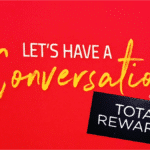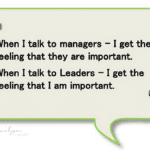There’s been a lot of talk about corporations and government being more transparent. As a result, the use of the word transparency is creeping into our business vocabulary. But before you start tossing out the word “transparency” it’s important to understand what it means.
I think a lot of people are using transparency has a synonym for truth. If I’m telling the truth, then I’m being transparent. I contend that the relationship between truth and transparency is similar to the relationship between reliability and validity as it relates to assessments.
If an instrument is valid, then it’s reliable. But if something is reliable, that doesn’t mean it’s valid. Case in point: you can be consistently wrong.
So my thought is, if you’re transparent then you are truthful. However, telling the truth doesn’t make you transparent. Here’s an example:
An 8 oz. glass is filled with 4 oz. of wine. You can say that glass is half-full or half-empty (depending upon your disposition). Both would be the truth.
Transparency is saying there’s 4 oz. of wine in the glass.
It’s a simplistic example, but you get the point. Transparency implies openness, communication and personal accountability. It’s not only telling the truth but providing access to all the data and encouraging inclusiveness in the decision making process.
For many individuals and businesses, transparency is and will continue to be difficult to achieve. There’s a tendency to spin situations for positive outcomes. The demand to act in a transparent manner requires people to hold themselves accountable for information they receive. It’s becomes their responsibility to share it, discuss it and help others understand it.
We need to push to make sure the “knowledge is power” and “need to know” concepts are gone forever. It’s time to take transparency seriously.







Steve Boese says
Really interesting and excellent point. I think that the concepts can be easily confused. Organizations may think by simply engaging in new media they are being transparent, but if all they are doing is simply re-hashing their version of the truth or their point of view in a different forum, then they are not acting transparently at all. Lastly, I would like know if there is a place that offers up 8 oz glasses of wine? Sounds like a fun place. Great work, once again.
Lisa Rosendahl says
How would you see the relationship bewteen transparency and authenticity? Transparency requires people to also hold themselves accountability for the information they communicate. No room for ego, spin or hidden agendas. Sometimes it may not be pretty because the speaker may just have to say that they made a mistake or even worse yet, that they don’t know, but it is so important. Love the post.
Anthony Testi says
Ms. Lauby
A very good distinction and I agree with you up to your final comment, which really is a totally different topic.
“We need to push to make sure the “knowledge is power” and “need to know” concepts are gone forever. It’s time to take transparency seriously.”
In brief please consider the issue of information overload. I want to buy X product, some shares in a company or need to make a quick medical decision for my child I really do not want all the knowledge and do I really want all there is “need to know” I can if I want via the web magazines etc. read 100s of opinions, see dozens of comparison charts etc. Some times for sanity sake I just need it boiled down! And this is from a data nerd. Yes knowledge is power and sometimes I will give someone else the power so that I can be powerful in other areas.
I guess I want access to good information when I want it and the ability to dig deeper when needed but much of the time I do not want it otherwise I will drown or not be able to move forward at all.
I hope I have been able to capture on paper some of my thinking; your writing abilities are far superior to my limit abilities.
hr bartender says
Lisa’s comment about authenticity is spot on. There’s an implication that transparency includes being authentic. I see one of the real challenges being the delivery of difficult messages. As a general rule, I’ve found people don’t like to go “on the record” even if they have information that should be heard. Part of transparency will be putting yourself out there and many people will find that uncomfortable.
I also agree with Anthony that sometimes we either don’t need and/or want every scrap of information available. Recipients need to know that additional information exists. Then they can choose to hear it or not take it into account. If the person who has the information doesn’t share it or at least offer it, it could be perceived as deceptive.
Thanks for the comments and conversation. Look forward to hearing more about this subject…